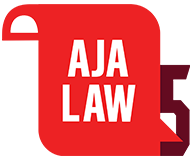
Blog
SEC Filing Requirements and Penalty Updates for Philippine Corporations in 2024

As we navigate through 2024, ensuring compliance with the Securities and Exchange Commission (“SEC”) reportorial requirements remains crucial for corporations in the Philippines. Central to this compliance is the use of the SEC’s Electronic Filing and Submission Tool (“eFAST”), formerly known as the Online Submission Tool, which is now mandatory for all corporations—whether stock or nonstock—to file their annual reportorial requirements. Among these essential requirements are the timely submission of the General Information Sheet (“GIS”) and Audited Financial Statements (“AFS”).
In addition to these requirements, the SEC has introduced the Enhanced Compliance Incentive Plan (“ECIP”) for 2024, designed to assist corporations that have fallen behind in their reportorial obligations, offering a structured path to regain good standing.
This year, the SEC, under SEC Memorandum Circular (“MC”) No. 6, Series of 2024, has introduced updated fines and penalties for the late or non-submission of these documents, as well as for non-compliance with SEC MC No. 28, Series of 2020 (“MC No. 28”).
General Information Sheet
The GIS is an annual report detailing a corporation’s structure, including information on directors, officers, shareholders, and beneficial ownership. Different types of corporations have specific timelines for the submission of the GIS or its equivalent, as outlined below:
- Domestic Stock and Non-Stock Corporations: Required to submit the GIS within 30 days of the annual stockholders’ or members’ meeting.1
- Branch and Representative Offices of Foreign Corporations: Must file within 30 days of the anniversary of their SEC license issuance.2
- One Person Corporations (“OPC”): Instead of a GIS, OPCs must submit the SEC Form for the Appointment of Officers within 15 days of incorporation or within 5 days of any change in officer information.3
Audited Financial Statements
The AFS is an annual requirement providing a comprehensive overview of a corporation’s financial standing. The following entities must submit annual audited financial statements:4
- Stock and Nonstock Corporations with total assets or total liabilities of at least PHP 600,000.
- Branch/Representative Offices of Foreign Corporations with assigned capital or total assets equivalent to at least PHP 1,000,000.
- Regional Operating Headquarters of Foreign Corporations with total revenues equivalent to at least PHP 1,000,000.
Corporations below these thresholds may submit their AFS certified under oath by the treasurer or chief financial officer.
Additionally, the submission schedule varies depending on the corporation’s fiscal year:
- Standard Fiscal Year: Corporations with a fiscal year ending on December 31 must submit their AFS according to the filing schedule based on the last numerical digit of their SEC registration or license number.
- Other Fiscal Years: Corporations with fiscal years ending on dates other than December 31 must file their AFS within 120 calendar days from the end of their fiscal year.
SEC Memorandum Circular No. 28, Series of 2020
Under SEC MC No. 28, all corporations are required to establish official email addresses and phone numbers for SEC transactions to facilitate efficient communication and ensure timely notifications. Notably, the SEC enhanced this process by integrating SEC MC No. 28 with the eSPARC and OneSEC portals. Now, all newly registered corporations are automatically compliant with MC 28 upon registration and are also automatically enrolled in the eFAST.5
Updated Fines and Penalties
The SEC has increased the fines for the late or non-submission of GIS and AFS, as well as non-compliance with SEC MC No. 28.6 This adjustment reflects the SEC’s stricter stance on compliance, emphasizing the need for corporations to meet their obligations promptly. The details of these penalties are as follows:
- Late Filing/Submission: Corporations that submit reportorial requirements after the due date but within one year of the deadline will now face heightened penalties. Filing beyond one year incurs a base fine categorized as “Non-Filing”, with additional monthly penalties that are capped at 12 months. For SEC MC No. 28, late submission is defined as filing more than 30 calendar days after the issuance of the certificate of registration, license, or authority.
- Non-Filing: The failure to submit the required documents altogether will lead to even steeper penalties.
The updated fines are structured based on retained earnings, fund balance, or equity for domestic corporations, and accumulated income or members’ equity for foreign corporations. Penalties escalate with repeated offenses, and habitual non-compliance can lead to the revocation of the Certificate of Registration or License to Transact Business (“License”).
Further, the SEC may declare a corporation under delinquent status if it fails to submit reportorial requirements three (3) times within five (5) years, whether consecutively or intermittently.7 A sixth offense could result in the revocation of the corporation’s Certificate of Registration or License, along with significant monetary fines.8
Enhanced Compliance Incentive Plan9

To assist corporations in maintaining compliance, the SEC has introduced the Enhanced Compliance Incentive Plan (“ECIP”) under SEC MC No. 13, Series of 2024. This ECIP allows non-compliant and delinquent corporations to settle unassessed fines and penalties related to the late or non-filing of GIS, AFS, and non-compliance with SEC MC No. 28. Corporations must apply through the SEC’s eFAST platform, pay a fixed fee of PhP20,000 for non-compliant entities, or 50% of assessed fines for suspended or revoked corporations, and complete their requirements by 30 November 2024.
The procedure involves submitting an Expression of Interest Form via eFAST, settling the necessary fees through eSPAYSEC, and uploading the required documents for review, including the latest GIS, AFS, and proof of compliance with SEC MC No. 28. Once compliance is verified, the corporation will receive a Confirmation of Payment, regularizing their compliance status and helping avoid harsher penalties or potential revocation of their registration.
MOVING FORWARD WITH COMPLIANCE
In light of the SEC’s stricter enforcement measures and increased penalties, it is essential for corporations to diligently fulfill their filing obligations. Utilizing the SEC’s eFAST platform ensures that submissions are both timely and accurate, reducing the risk of penalties and helping maintain good standing with the SEC. For those corporations that have fallen behind, the ECIP provides a valuable opportunity to regularize their compliance status by settling outstanding fines and avoiding harsher penalties, including the potential revocation of their registration. As regulations continue to evolve, companies must stay informed and proactive in their compliance efforts to ensure sustained success and legal integrity.
If your corporation requires further guidance on SEC reportorial requirements, penalties, or the ECIP, it is advisable to consult with a legal professional to ensure that your business remains compliant with all relevant regulations and avoids any potential penalties or legal complications. Having a trusted professional by your side will streamline the compliance process, allowing you to focus on what truly matters—growing your business.
A copy of the SEC-prescribed deadlines, penalties and details on the ECIP can be accessed through the following links:
- SEC MC No. 2, Series of 2024 – 2024 Filing of AFS and GIS
- SEC MC No. 6, Series of 2024 – Updated Fines and Penalties
- SEC MC No. 13, Series of 2024 – Enhance Compliance Incentive Plan
Prepared by Christian Justin B. Streegan.
FOOTNOTES
- SEC Memorandum Circular (“MC”) No. 2, Series of 2024.
- SEC MC No. 15, Series of 2006.
- SEC MC No. 7, Series of 2019.
- SEC MC No. 2, Series of 2024.
- Section 2, SEC MC No. 23, Series of 2023.
- SEC MC No. 6, Series of 2024.
- Section 177, Revised Corporation Code of the Philippines.
- SEC MC No. 6, Series of 2024.
- SEC MC No. 13, Series of 2024




